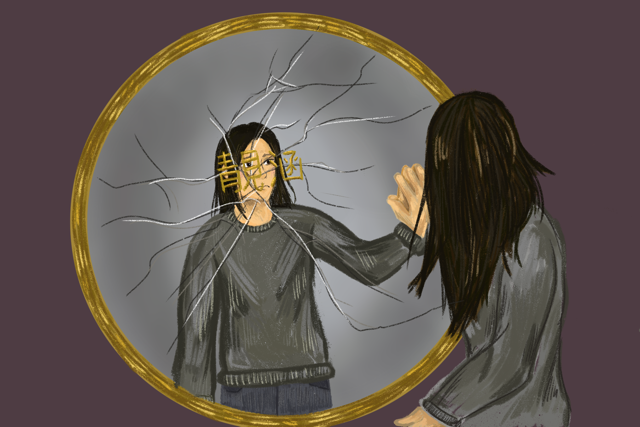During my first year, in an introductory computer science class with over a hundred students, my professor handed out exam papers by calling out names. As he tried his best to pronounce the overwhelming amount of East Asian names on his list, correcting himself several times, he realized that it was slowing down the process. Eventually, students were addressed by their NetIDs only.
Considering that the English translation of names in other languages seldom instructs accurate pronunciations, mispronunciations are common. In fact, I’ve always thought the English translation of my Taiwanese name sounded funny — “Ching-Han.” Once, a customer service agent on the phone took “Ching” as my first name and “Han” as my middle name and proceeded to address me as “Ching” throughout the conversation. This made me laugh a little because of how little it sounded like my actual name and how much it sounded like a slur.
“Just call me Katie,” I ended up saying, like I usually do.
I have been Katie for almost as long as I have been “靚涵”. My dad thought “Catherine the Great” was a savage title but perhaps overly dramatic for a kid, so he landed on “Katie” because his celebrity crush was Katie Holmes. Having a Westernized name isn’t uncommon. Growing up in a bilingual elementary school in Taiwan, half of my classes were taught by native English speakers — usually from the United States — and every kid had a Westernized name the teachers could easily pronounce.
In establishing myself as “Katie,” “靚涵” became a more intimate identity. My name was chosen keeping in mind my Chinese zodiac sign, my “bazi” — also known as the “eight characters,” a form of Chinese astrology that looks into the unique set of characteristics surrounding the date and hour of one’s birth to interpret people, situations and objects in one’s life — its total strokes and many more mysterious rules of fortune telling. According to the Five Elements Theory of Chinese philosophy, water, wood, fire, earth and metal are believed to be the fundamental elements of everything in the universe. For instance, according to my bazi, my life lacks the water element out of the five elements. In Chinese culture, a name should not be given lightly, as any minor difference is believed to have a major impact on a person’s life. This name thus becomes a relatively private detail of my identity that I do not expect anyone other than my family and closest friends to know.
As I try to find my footing alone in a foreign country, the once no-brainer choice of signing off as “Katie” has raised the guilt of abandoning my culture. My first confrontation came at the end of my first year when I decided to submit a letter addressed to my grandparents to an online anthology. The letter was a heart-wrenching account of the immense weight the American Dream carries in my Taiwanese family, written not long after the Fourth Taiwan Strait Crisis.
“If learning English is an achievement in your American Dream, I hope you never understand this letter,” I wrote at the end of the letter. “I wish you never had to have an American Dream.”
In the blank space below “Name” in the submission form, my first instinct was to type “Ching-Han Liao” — it is the only name my grandparents know me by. How could I ever register as “Katie,” a name so foreign to them, when the letter itself protests that? Yet, the first thing my mother did after reading the letter was make me promise to never publicize the letter, especially not in my legal name.
“It’s not safe,” she said. “It’s too political.”
That night, going against my own promise, I pressed the submit button with my Westernized name in that tiny abyss of blank space. The name that once used to compromise my cultural identity became a shield for my political identity.
Beyond assimilation and convenience, my Westernized name offers a safety that my birth name sometimes can not. The intricate relationship between two names often stems from the struggle to pin down an exact answer in personal identity when it is inherently multifaceted. In signing off as “Katie Liao” to this piece, I have made a decision, like I have countless times before and will continue to do. No one should be subjected to others’ moral judgement of the name they decide to put down when they are the only person who understands its full meaning.
Contact Katie Liao at [email protected].
























































































































































